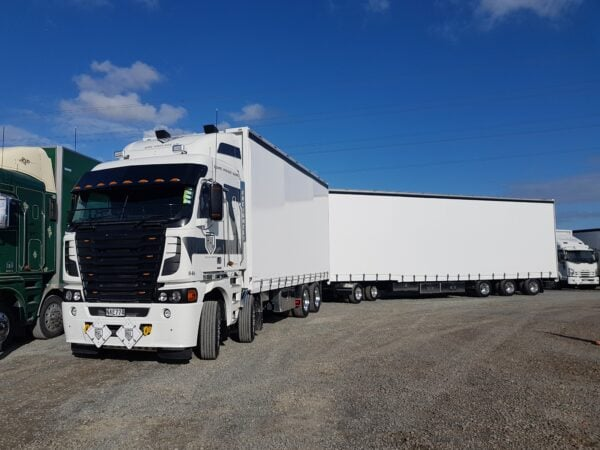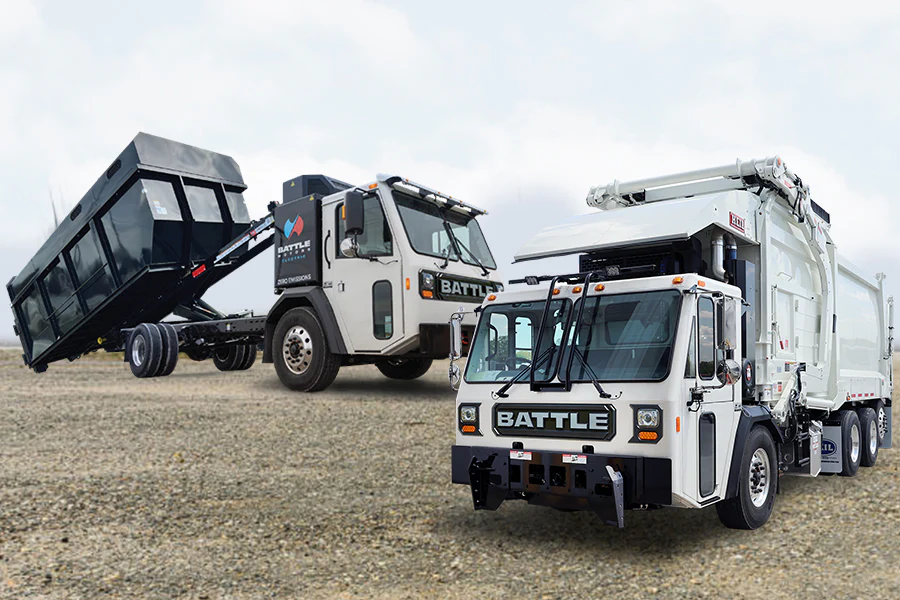Choosing the right truck for your business is a critical decision that can significantly impact your operations, costs, and efficiency. Whether you’re in construction, logistics, landscaping, or any other industry that requires heavy-duty transportation, the truck you select needs to align with your specific business needs. This guide will walk you through the key factors to consider when selecting a truck, ensuring that you make an informed decision that supports your business goals.

- Understand Your Business Requirements
Assess Your Load Capacity Needs
One of the first considerations when choosing a truck is the type and volume of cargo you need to transport. Understanding your load capacity requirements will help you select a truck with the right size and power.
- Payload Capacity: This refers to the maximum weight a truck can carry, including the cargo, passengers, and any additional equipment. If your business involves transporting heavy goods, such as construction materials, you’ll need a truck with a high payload capacity.
- Towing Capacity: If your business requires towing heavy equipment or trailers, ensure that the truck has the necessary towing capacity. Overloading a truck can lead to increased wear and tear, safety issues, and higher maintenance costs.
Consider the Nature of Your Cargo
Different types of cargo require different types of trucks. For example, if you’re transporting perishable goods, you might need a refrigerated truck. If you’re in the construction industry, you may require a dump truck or a flatbed truck for transporting heavy materials.
- Box Trucks: Ideal for businesses that need to transport large volumes of goods, such as retail or moving companies.
- Pickup Trucks: Suitable for smaller loads and versatile enough for various business needs, including landscaping, repair services, and light construction.
- Refrigerated Trucks: Essential for businesses that need to transport perishable goods, such as food and pharmaceuticals.
- Evaluate Fuel Efficiency and Operating Costs
Fuel Efficiency Considerations
Fuel costs are a significant factor in the overall cost of operating a truck. When choosing a truck, consider the fuel efficiency of different models. While larger trucks with bigger engines might offer more power, they also tend to consume more fuel.
- Diesel vs. Gasoline: Diesel engines typically offer better fuel efficiency and longer engine life, making them ideal for businesses that operate trucks over long distances or in heavy-duty applications. However, diesel trucks can be more expensive upfront.
- Hybrid and Electric Options: As sustainability becomes increasingly important, hybrid and electric trucks are becoming viable options for businesses. These trucks can reduce fuel costs and emissions, though they may come with higher initial purchase prices.
Maintenance and Repair Costs
Beyond fuel efficiency, it’s essential to consider the long-term maintenance and repair costs associated with the truck. Some truck brands and models are known for their durability and lower maintenance costs, which can save your business money over time.
- Reliability: Research the reliability ratings of the trucks you’re considering. Trucks with high reliability ratings are less likely to require frequent repairs, reducing downtime and repair costs.
- Warranty and Service Plans: Consider trucks that come with comprehensive warranties or service plans. These can cover unexpected repairs and maintenance, providing peace of mind and helping manage operating costs.
- Factor in the Truck’s Durability and Lifespan
Build Quality and Materials
The durability of a truck is determined by its build quality and the materials used. Trucks that are built with high-quality materials and strong construction can withstand the rigors of daily use and have a longer lifespan.
- Chassis and Frame: Look for trucks with a robust chassis and frame that can handle the demands of your business operations. Steel frames are often more durable, but aluminum frames are lighter and more resistant to corrosion.
- Engine and Transmission: The engine and transmission are critical components that influence the truck’s performance and lifespan. Ensure the truck has a reliable engine and transmission that can handle the demands of your business.
Resale Value
When choosing a truck, it’s also worth considering its resale value. Some truck models hold their value better than others, which can be advantageous if you plan to sell or upgrade the truck in the future.
- Brand Reputation: Trucks from reputable brands tend to have better resale values. Research the resale values of different truck models to ensure you’re making a sound investment.
- Think About Driver Comfort and Safety Features
Driver Comfort
Driver comfort is crucial, especially if your business involves long hours on the road. A comfortable cabin can reduce driver fatigue and increase productivity.
- Seating: Look for trucks with adjustable, ergonomic seats that provide good lumbar support. Heated seats can also be a plus in colder climates.
- Cabin Features: Consider additional features like climate control, ample storage space, and advanced infotainment systems that can make driving more comfortable and convenient.
Safety Features
Safety should be a top priority when choosing a truck. Modern trucks come with various safety features that can protect the driver, cargo, and other road users.
- Advanced Driver Assistance Systems (ADAS): Features like lane departure warning, blind-spot monitoring, and automatic emergency braking can enhance safety on the road.
- Visibility: Trucks with good visibility and large mirrors reduce blind spots, making driving safer, especially in urban environments.
Conclusion
Choosing the right truck for your business requires careful consideration of your specific needs, budget, and long-term goals. By assessing your load capacity, evaluating fuel efficiency, considering durability, and prioritizing driver comfort and safety, you can select a truck that will serve your business well for years to come. Investing in the right truck not only enhances your operational efficiency but also contributes to the overall success of your business.

